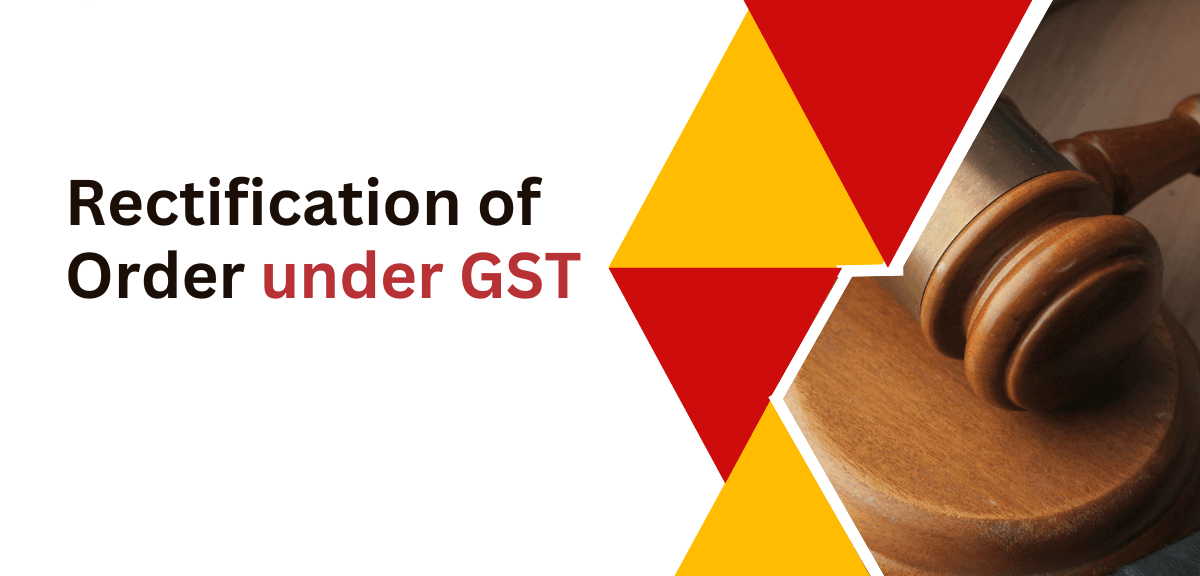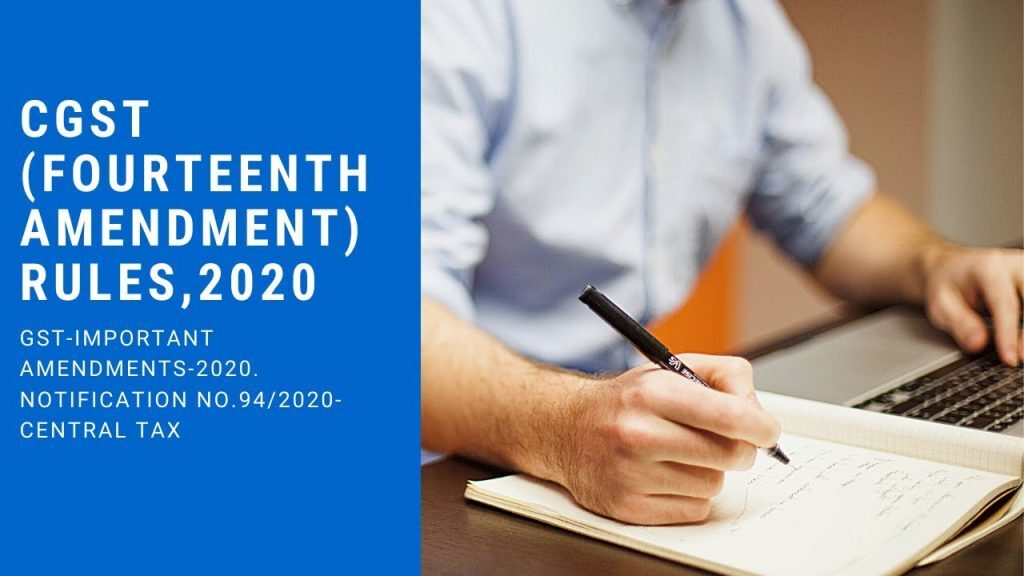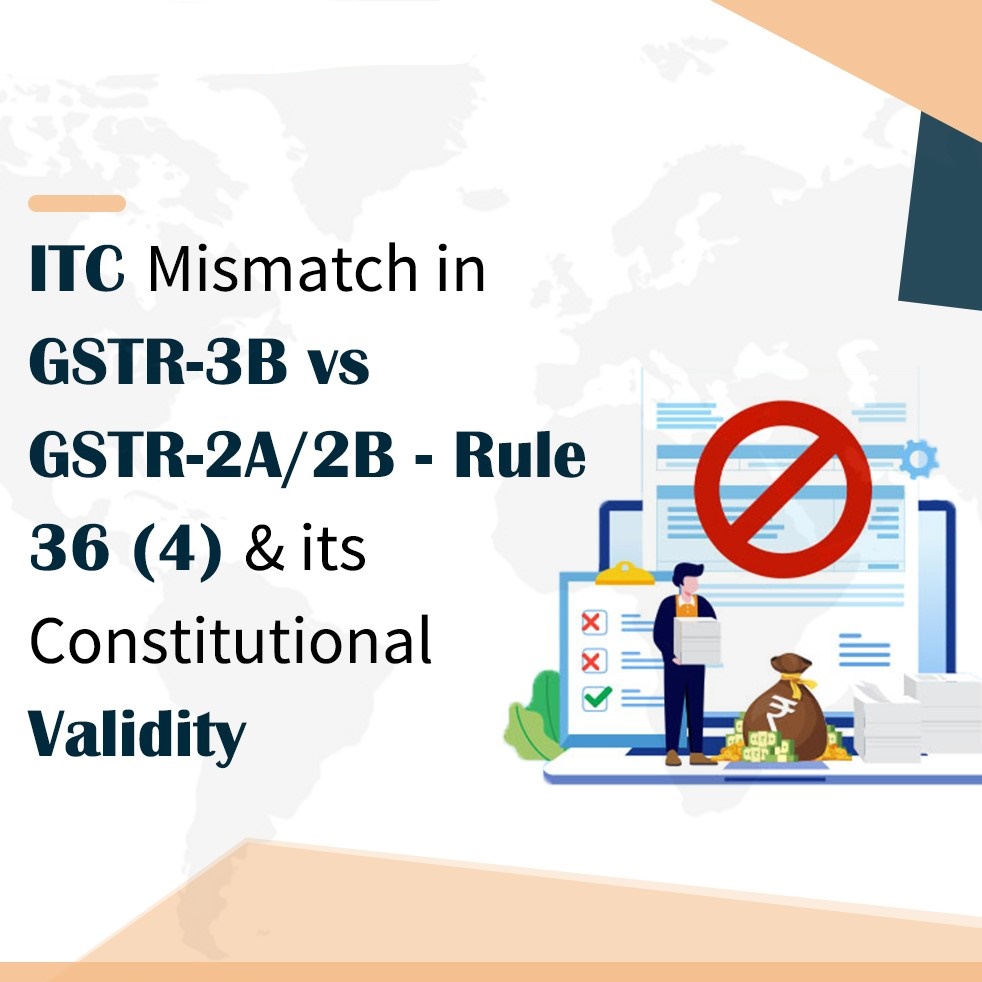Amendments introduced- CGST (14th Amendment) Rules 2020
Page Contents
Key Highlights of Amendments introduced- CGST (14th Amendment) Rules 2020
The time limit for system-based GST Registration increased
- The time for system-based registration has been extended from 3 days to 7 days. That implies that, as given earlier from the date of filing of the application for registration, the department is now expected to review and approve the registration within 7 days against 3 days. If the applicant does not make an adhaar authentication or if the department finds it necessary to carry out physical verification, the time limit for granting the registration shall be 30 days instead of seven days.
- Application for registration of GST (Rule 9): Application to be accompanied by Aadhaar Biometric Authentication and Photography/KYC of the applicant.
- Deadline for grant of GST Registration (Rule) : The period to grant Registration has been increased from three days to seven days.
Cancelation of GST Registration (Rule 21)
More Powers to GST dept in cancellation of GSTIN
- Now the GST officer can proceed for cancellation of GSTIN where a taxpayer avails ITC exceeding than that permissible in Section 16(e) has been inserted in Rule 21 of CGST Rules 2017. More criteria added for cancellation of GST Registration. The ten percent limit on ITC claims for invoices or debit notes, the details of which were not uploaded by the suppliers, was reduced to 5%.
- If the liability declared in GSTR 3B is less than that declared in GSTR 1 in a given month, the department may now proceed with the cancellation of GSTIN. There may be some practical problems in enforcing such a clause, as there are a range of corrections made in GSTR 3B which may result in lower tax liability compared to GSTR 1. The newly added clause (f) relates to the details of the outward supply of which we understand that both the taxable value and the tax should be in synchronisation between GSTR 1 and GSTR 3B.
- No right to be heard shall be granted to a taxpayer for suspension of GSTIN if the proper officer (PO) has reason to believe that the person’s registration will be canceled. The words ‘possibility to be heard’ have been omitted from Rule 21A, clause 2.
- Since there is a substantial discrepancy/anomaly between the details of the outward supply between GSTR 3B and GSTR1 or the inward supply (ITC) between GSTR 3B and GSTR 2B suggesting contravention of the Act, the department shall now inform FORM GST REG 31 of the reasons why GSTIN should not be canceled. Taxpayers shall be expected to send their reply within 30 days of receiving such notification.
- Where a GSTIN is revoked, the taxpayer may not make a refund to us 54 of the CGST Act 2017. This means that the first GSTIN suspension process must be finished before the refund is applied.
Restriction of 10 % on a claim of claiming ITC reduced as per Rule 36(4) & Rule 37
- The input tax credit claims for invoices not issued by the corresponding suppliers have now been reduced to 5 percent of the credit available in GSTR 2B. The above cap was 10% of the available input tax credit. This will mean that the ITC claim of a taxpayer is now limited to 105 % of the credit expressed in its GSTR 2B. Any claim that exceeds the prescribed limit shall result in a breach of the CGST Act which is read in compliance with the rules which may result in the suspension of GSTIN as mentioned above. That provision shall enter into force on 1 Jan 2021.
GSTR 1 to be blocked in case of non-filing of GSTR 3B
- If a taxpayer failed to file GSTR 3B for 2 months thereafter, his GSTR 1 shall now be barred. Previous non-filing of GSTR 3B used to result in the blocking of the E-way Bill facility, however from now on it will also result in the blocking of GSTR 1 by the taxpayer. Similar vein, in the case of quarterly return filers, taxpayers who have not filed GSTR 3B for the preceding quarter are not entitled to file GSTR 1 for the following quarter.
- A taxpayer whose use of ITC as provided for in Rule 86B is also prohibited from filing GSTR 1 where GSTR 3b has not been filed for the preceding tax period.
New Restriction on Utilization of ITC – Rule 86B
- New Rule 86B shall apply from 1 Jan 2021 in which more than 99 % of the tax liability for ITC has been decreased if the amount of taxable supplies other than exempt supplies & zero-rating supplies exceeds INR 50 lakhs per month. While few exceptions to this rule have been made, they are as continues to follow:
- Where the taxpayer has paid income tax in excess of INR 1,00,000/- in the last two Financial Years.
- where if the taxpayer has earned a refund in excess of INR 1,00,000/- u/s 54 of the CGST Act 2017.
- Where the taxpayer has used electronic cash leger to pay liability for outward materials, which amounts to a cumulative 1% of the overall liability up to that month.
- where an individual is a local authority or governmental body, a PSU, or a statutory authority.
Narrowing the validity of E-way bill
- Previously one day a distance of up to 100 km was allowed under the e-way bill. The same has now been raised to 200 km. This means that only one day of validity is given to cover a distance of up to 200 km which was 100 km previously.
Rectification of Assessment Orders related Guidelines issued u/s 161 by Delhi GST Act

Instruction for rectification of assessment orders with errors apparent on the face of record under section 161 of Delhi GST Act issued by Delhi Dept of Trade and Taxes releases


